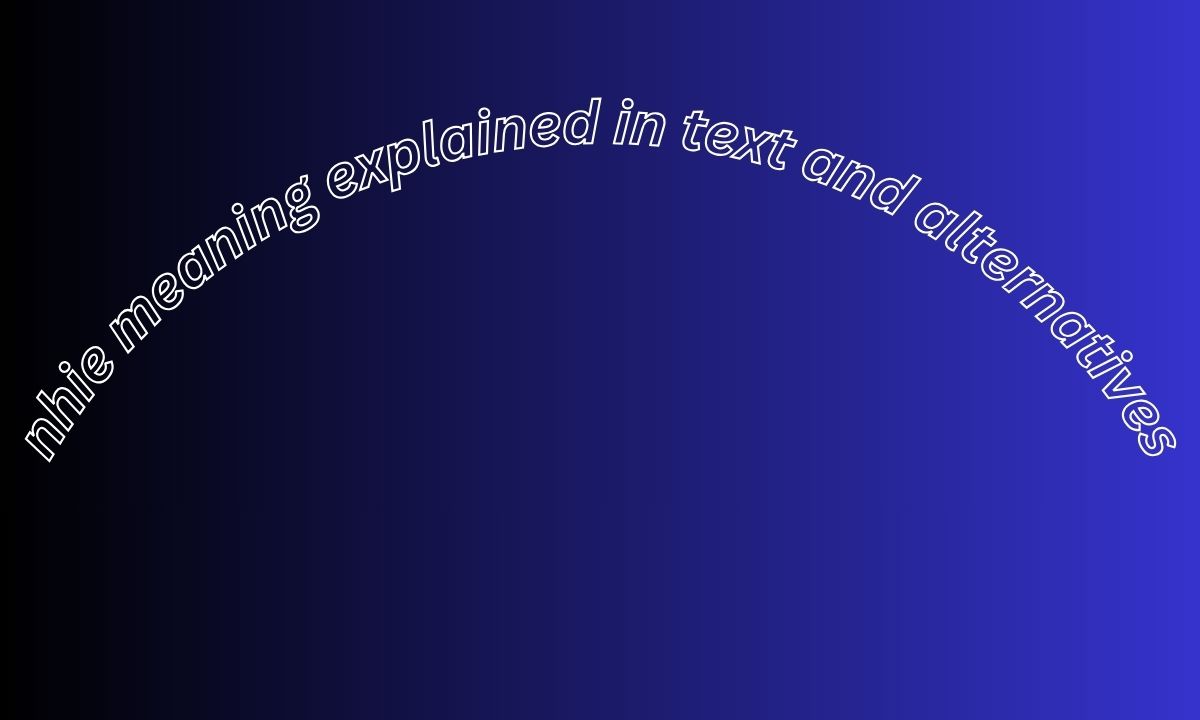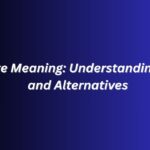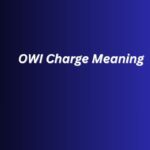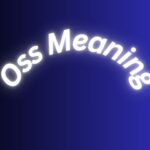Language keeps evolving, and new abbreviations often emerge in casual conversation, especially in digital spaces. One such abbreviation is “nhie”, which carries a specific meaning when used in text or online chats. Understanding it helps avoid confusion and miscommunication.
When people encounter “nhie”, they might wonder if it is just random letters or if it carries a deeper purpose. In reality, it is tied to a phrase commonly used in games, conversations, and informal exchanges across social platforms.
In this article, we will explore the meaning of “nhie”, how it appears in everyday text, its connection with conversational tone, and polite or professional alternatives. We’ll also examine context, usage examples, and provide 15 carefully chosen expressions.
What Does “nhie” Mean?
The abbreviation “nhie” stands for “Never Have I Ever.” It is popularly associated with the classic conversational game where players reveal experiences they have or haven’t had. Over time, this abbreviation has moved from the game into everyday digital communication.
When used in text messages or chats, “nhie” usually means someone is referring to the game itself, or they are expressing that they truly have never experienced something. Its tone is casual, friendly, and often playful, making it a common expression among peers.
In contrast to formal communication, “nhie” rarely appears in professional emails or serious conversations. Instead, it thrives in informal discussions, group chats, and social media interactions, where abbreviations are part of digital shorthand.
“nhie meaning” in Text
In text, “nhie” most often points to either the game “Never Have I Ever” or serves as a quick statement of inexperience. For example, if someone writes: “nhie traveled abroad”, it means they are sharing something they have never done.
It’s important to recognize the tone: “nhie” is lighthearted. When someone uses it, they are not necessarily making a confession in a serious manner but rather participating in a casual conversation. The meaning is clear only when both parties share familiarity with the abbreviation.
Since not everyone may know the shorthand, relying on “nhie” in formal settings can cause misunderstandings. That’s why it is best reserved for chats with friends, playful exchanges, or when directly referring to the social game.
Alternatives to “nhie”
Sometimes, people prefer not to use abbreviations like “nhie” and instead choose polite, professional, or casual alternatives depending on the context. Each alternative conveys a slightly different tone, but all share the idea of expressing inexperience or a lack of prior action.
Below are 15 alternatives to “nhie,” explained with context. These are grouped by polite, professional, and casual tones for flexibility in different situations.
1. I have never experienced that
A straightforward and polite expression, suitable for conversations where clarity is important. Example: “I have never experienced that kind of event before.”
2. That has not happened to me
Neutral and professional in tone, this works well in workplace discussions. Example: “That situation has not happened to me in my career.”
3. I haven’t done that before
Casual and conversational, this is a softer replacement for “nhie.” Example: “I haven’t done that before, but it sounds fun.”
4. That is new to me
This phrase suggests something unfamiliar without sounding too serious. Example: “That’s new to me; I’ve never come across it.”
5. I can’t say I have
A polite alternative often used in both casual and formal exchanges. Example: “I can’t say I have had that experience.”
6. It hasn’t been part of my experience
More formal and refined, often used in professional communication. Example: “It hasn’t been part of my experience to manage that type of project.”
7. That’s outside my experience
Polite and semi-formal, works well in discussions about skills or knowledge. Example: “That’s outside my experience, but I’d like to learn more.”
8. I have yet to try that
Suggests curiosity while admitting inexperience. Example: “I have yet to try that new restaurant everyone is talking about.”
9. I’m unfamiliar with that
Clear, respectful, and suitable for professional discussions. Example: “I’m unfamiliar with that tool, but I can research it.”
10. That hasn’t come up for me
Friendly and approachable. Example: “That hasn’t come up for me, but it sounds interesting.”
11. Not something I’ve done
Simple and casual, close in tone to “nhie.” Example: “That’s not something I’ve done, though I’d like to.”
12. I don’t have that experience
Professional and direct, ideal for work-related conversations. Example: “I don’t have that experience yet, but I’m willing to learn.”
13. That’s not part of my background
Often used in resumes, interviews, or formal statements. Example: “That’s not part of my background, but I bring other strengths.”
14. I’ve never gone through that
Polite, personal, and clear. Example: “I’ve never gone through that, so I can’t speak to it.”
15. That hasn’t been the case for me
Polite and diplomatic, excellent for professional settings. Example: “That hasn’t been the case for me, though I’ve heard it happens often.”
Choosing the Best Alternative
The right expression depends on tone, audience, and context. If you are chatting casually with friends, using “I haven’t done that before” feels natural. In a professional interview, “That’s not part of my background” is more appropriate.
Casual alternatives keep conversations friendly, while professional ones maintain credibility and respect. Polite forms balance both worlds, offering clarity without sounding overly casual or stiff. The key is adjusting language to suit the situation.
Nuances of Tone in Alternatives
Tone matters because it shapes how your words are received. For example:
- Polite alternatives show respect without unnecessary detail.
- Professional alternatives present a capable, thoughtful image even when admitting inexperience.
- Casual alternatives keep the conversation easygoing, open, and approachable.
By considering tone, you ensure that your alternative to “nhie” matches not only what you want to say but how you want to be understood.
Why Avoid Abbreviations in Professional Settings?
Abbreviations like “nhie” can create barriers in professional communication. Not everyone will understand them, and using shorthand in formal contexts may appear careless. Instead, choosing a clear and respectful phrase enhances your professionalism.
In casual environments, abbreviations are acceptable, but when precision matters, full expressions show maturity, clarity, and confidence. This small change helps build credibility, especially in work or academic contexts.
Conclusion
The abbreviation “nhie” carries the meaning “Never Have I Ever,” rooted in a social game but adapted into text conversations. While it thrives in casual chats, using suitable alternatives ensures clarity and professionalism in different contexts.
By learning polite, professional, and casual substitutes, speakers can express themselves naturally while avoiding misunderstandings. Whether you say, “I have never experienced that” or “That’s not part of my background,” each choice reflects thoughtful communication.
Ultimately, knowing when to use “nhie” and when to choose an alternative makes you more effective in both social and professional conversations. Language evolves, but clarity and respect remain timeless.

Elizabeth crafts heartfelt messages for every occasion—anniversary wishes, love notes, prayers, thank-yous, and inspirational greetings—bringing warmth, joy, and connection to your special moments.










